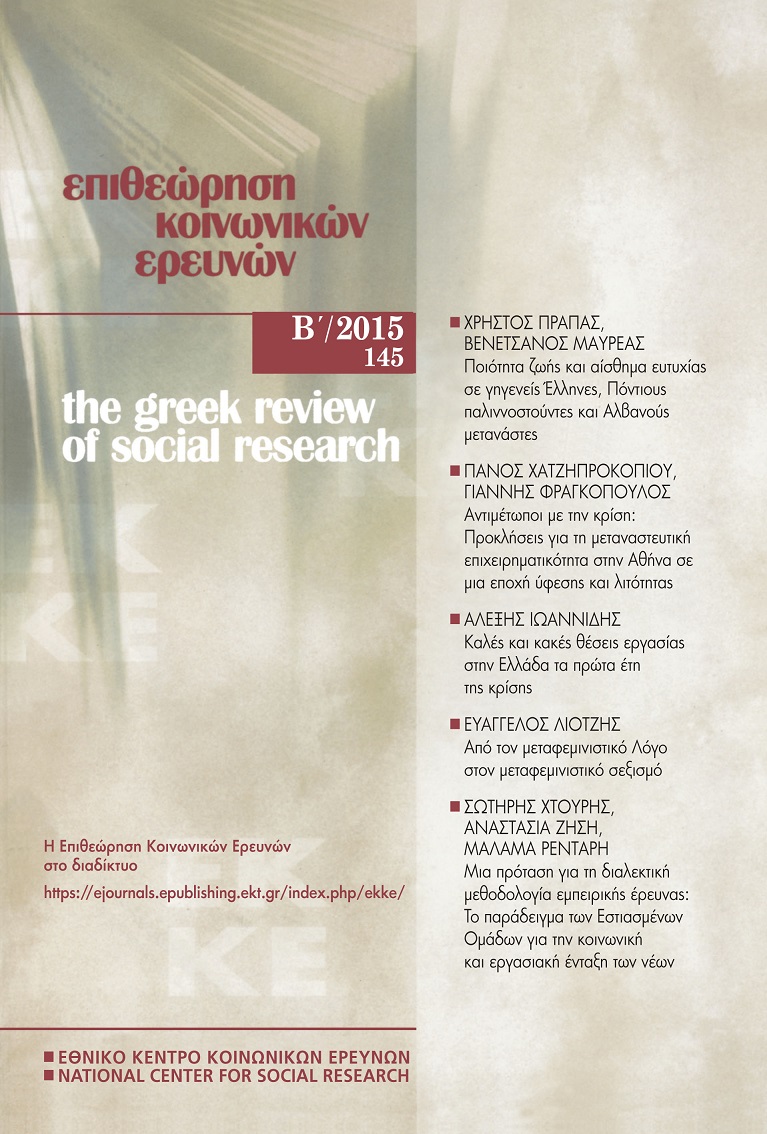Unpaid overtime in Greece. Determining factors and theoretical explanations

Abstract
The rising of unpaid overtime is a recent trend in West Europe’s and North American labour markets. This phenomenon asks for explanation, since unpaid labour is not consistent with the prevalent economic paradigm. Various theoretical explanations have been proposed by the literature, within or outside the neoclassical framework, backed up with empirical testing. In this article, a literature review and an assessment of these explanations is offered, followed by an empirical investigation of the determinants of unpaid overtime for the Greek laborers. Based on these findings, theoretical conclusions and policy suggestions are been drawn.
Article Details
- How to Cite
-
Ιωαννίδης Α., Οξούζη Ε., & Μαυρουδέας Σ. (2013). Unpaid overtime in Greece. Determining factors and theoretical explanations. The Greek Review of Social Research, 139, 3–24. https://doi.org/10.12681/grsr.73
- Issue
- 2013: 139, A
- Section
- Articles

This work is licensed under a Creative Commons Attribution-NonCommercial 4.0 International License.
Authors who publish with this journal agree to the following terms:
- Authors retain copyright and grant the journal right of first publication with the work simultaneously licensed under a Creative Commons Attribution Non-Commercial License that allows others to share the work with an acknowledgement of the work's authorship and initial publication in this journal.
- Authors are able to enter into separate, additional contractual arrangements for the non-exclusive distribution of the journal's published version of the work (e.g. post it to an institutional repository or publish it in a book), with an acknowledgement of its initial publication in this journal.
- Authors are permitted and encouraged to post their work online (preferably in institutional repositories or on their website) prior to and during the submission process, as it can lead to productive exchanges, as well as earlier and greater citation of published work (See The Effect of Open Access).



